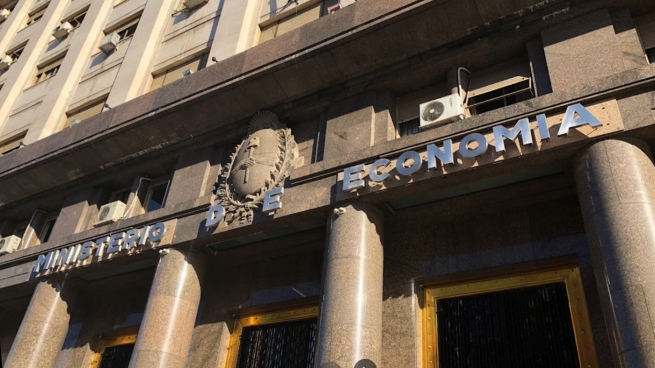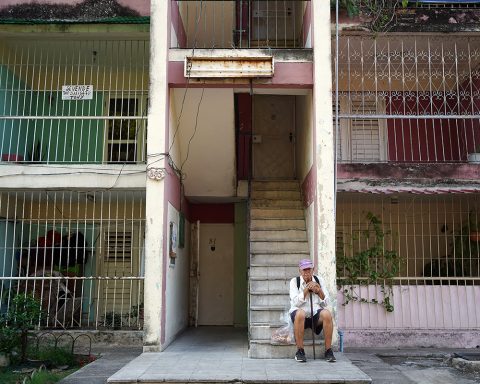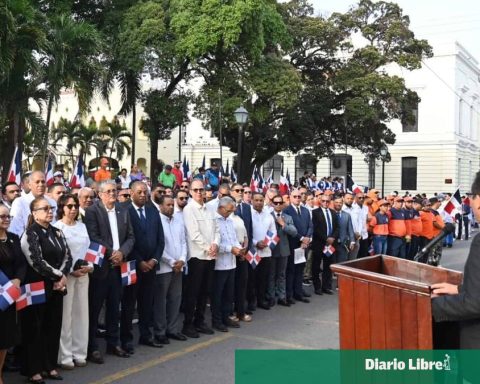The national government announced this Thursday a battery of economic measures to provide greater consistency to the economic program including a DNU for modify the budget -extended from 2021- to 2022, a recalibration of monetary policy with interest rate hikeand launch of a segmentation of energy and gas rates to reduce subsidies.
The objective is to reinforce “sustainable growth with job creation and the strengthening of the conditions to reduce inflation”, as well as the coordination of fiscal and monetary policies -through changes in subsidies and the interest rate – aims to “strengthen the accumulation of international reserves”.
The measures maintain the commitment to the quantitative goals of the economic program set for 2022 and agreed with the IMF: net accumulation of US$5.8 billion in international reserves, a maximum of 2.5 points of GDP in primary fiscal deficit, and a monetary issue to assist the Treasury of up to 1 point of GDP.
According to the Ministry of Economy, although the goals set for the first quarter of the year were met, the war in ukraine and, more recently, the international financial instabilitygenerated a strong increase in the international price of food and fuel, which affected inputs and production costs and the seasonality of public spending.
“The change in the prevailing conditions entails the need for a continuous adaptation of macroeconomic management“, affirmed in a statement the portfolio led by Martín Guzmán.
What are the new measures
• The modification of the budget -extended from 2021- to 2022
• A recalibration of monetary policy with a rise in interest rates
• The implementation of a segmentation of energy and gas rates to reduce subsidies.
From a fiscal point of view, the DNU 331/2022 posted this thursday modified the extended budget and made changes to the expected level of inflation (from 57.7% average for 2022) that allows the Government to make a new calculation of resources and credits of the National Public Administration (APN), as well as a determination of the primary deficit on an accrual basis.
“The increase in international energy prices requires strengthening the allocation of the budget towards those functions with the greatest distributive impact and expansion of productive capacity in the medium and long term,” said sources from the Economy portfolio.
In that sense, a subsidy segmentation regime was established for residential users of electricity and natural gas – through Decree 332/2022-, with which the payment capacity of households will be evaluated based on their socioeconomic conditions, in order to improve the distributive impact of the allocation.

Although the middle segments and those in a situation of vulnerability will have invoice increases below the variation in the salary variation coefficient (CVS), the segment identified as having the greatest ability to pay will have a gradual reduction in subsidies until they reach full coverage of the cost of energy by the end of 2022.
As for monetary policy, the Central Bank (BCRA) defined an increase of 3 percentage points in the yield rate of the Liquidity Letters (Leliq) with a 28-day term, going from 49% to 52% annual nominal (TNA), while fixed-term deposits for individuals will be 53% TNA (+5 percentage points) for deposits at 30 days and up to 10 million pesos.
For the rest of the fixed-term deposits of the private sector, the minimum guaranteed rate is set at 50% TNA (+4 percentage points).
Similarly, the interest rates charged by banks for business and consumer loans, such as credit cards and installment purchase programs, were adjusted upwards.
The goal of the Government is to encourage the export sectors to accelerate their sales by raising the cost of financing, and to encourage the demand for pesos by savers, today attracted to quickly get rid of money when buying durable goods or of different types before the sustained increase in prices.


















